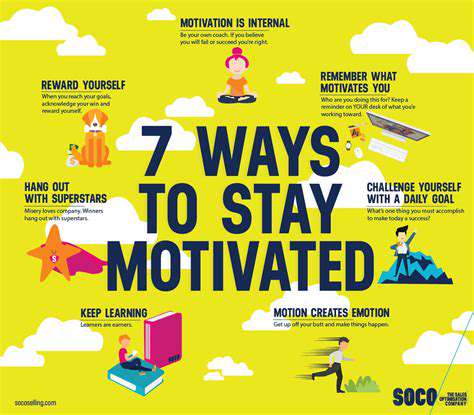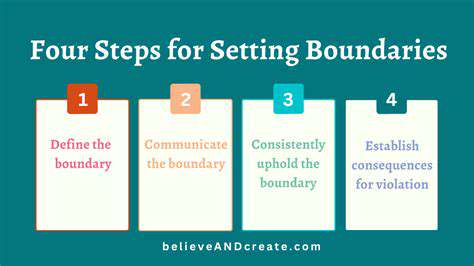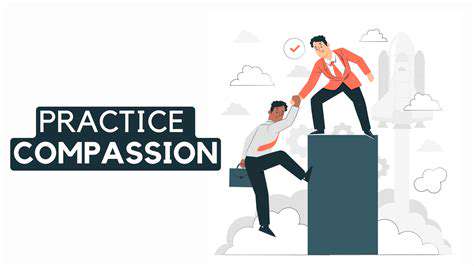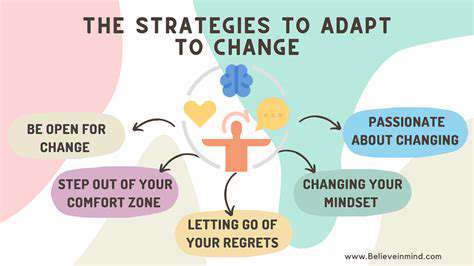Guide to Practicing Self Compassion Daily
Practicing Self-Kindness in Difficult Times
Setbacks hurt less when we meet them with self-compassion. Recently after a professional disappointment, instead of my usual self-criticism, I tried something different. I acknowledged the pain (This stings because you cared deeply), validated the effort (You prepared thoroughly), and looked forward (What can this teach you?). The difference in my emotional recovery was profound.
Responding to Mistakes and Setbacks with Compassion
Errors become gifts when framed as learning opportunities. A musician friend once told me, The wrong notes are how you find the right ones. This mindset transforms failure from something to fear into valuable feedback. The most successful people I know aren't those who never fail - they're those who fail compassionately, extracting lessons without self-flagellation.
The Role of Self-Acceptance in Building Self-Compassion
True self-acceptance isn't resignation - it's clear-eyed self-awareness. It's saying, This is where I'm at now, and that's okay. From this place of honesty, growth becomes possible. I've found that acknowledging my limitations actually reduces their power over me, creating space to either improve or work around them strategically.
The Power of Self-Forgiveness in Self-Compassion
Holding onto past mistakes is like dragging anchors everywhere you go. Self-forgiveness cuts those chains. It's not about excusing poor behavior, but about releasing its emotional grip. A technique I use: writing a letter to my younger self, offering the understanding I needed then. It's astonishing how this simple act can heal present-day self-criticism.
Before diving into display solutions, take time to thoroughly examine what you already own. Walk through your collection piece by piece, making handwritten notes about each item's condition, age, and distinguishing features. This hands-on approach creates a tangible connection with your collection that digital records can't replicate. You'll likely discover forgotten treasures and identify pieces needing special care through this tactile process.
Mindful Self-Care: Prioritizing Your Well-being
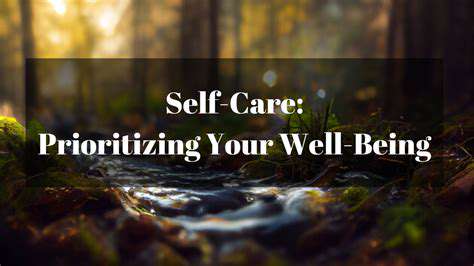
Prioritizing Your Well-being
Mindful self-care is the oxygen mask principle applied to daily life. We can't pour from an empty cup, yet so many of us try until we're running on fumes. True self-care isn't bubble baths and scented candles (though those can be lovely) - it's the sometimes unglamorous work of setting boundaries, saying no, and honoring our needs before resentment builds.
Understanding Your Needs
Self-care is deeply personal. I learned this the hard way when, exhausted, I kept following generic advice to meditate more, despite hating every minute. Real self-care began when I admitted walks in nature rejuvenated me far more than forced mindfulness. The key is honest self-observation - noticing what activities leave you refreshed versus drained.
Practical Self-Care Strategies
Effective self-care fits seamlessly into real life. For me, it's the five-minute pause between meetings to stretch and breathe, or the decision to prepare healthy lunches on Sundays. These small, sustainable practices create compound interest for well-being. The goal isn't perfection, but consistent small deposits in your emotional bank account.
Sustaining Your Self-Care Journey
Self-care isn't a destination but a practice, like brushing your teeth. There will be days you forget - the magic lies in returning to it without self-judgment. What matters isn't the lapse, but the commitment to begin again. Over years, this gentle persistence transforms your relationship with yourself.
Building a Supportive Self-Care Routine
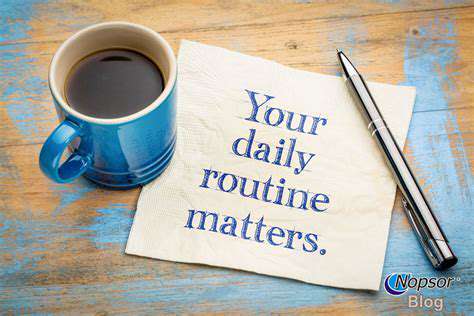
Understanding the Foundation of Self-Care
Self-care is the infrastructure of a resilient life. Just as buildings need strong foundations to weather storms, we need self-care practices to navigate life's challenges. This isn't about indulgence - it's about creating systems that sustain us through both calm and turbulent times.
Identifying Your Unique Self-Care Needs
Cookie-cutter self-care plans fail because they ignore individual differences. An extrovert's energizing coffee date might drain an introvert. The most effective self-care honors your authentic nature rather than fighting against it. I keep a energy audit journal - noting which activities replenish versus deplete me - to guide my routine.
Prioritizing Physical Well-being
Our bodies are the vehicles for everything we do, yet we often neglect them until problems arise. Simple, consistent habits - hydration, movement, sleep - create a physical foundation that supports mental and emotional health. I've found that even a ten-minute walk can reset my mood more effectively than an hour of scrolling.
Cultivating Mental and Emotional Well-being
The mind needs care as much as the body. For me, morning pages (stream-of-consciousness journaling) act as a mental palate cleanser. Creating space for unstructured thought prevents the mental clutter that leads to overwhelm. Similarly, scheduled worry time contains anxious thoughts rather than letting them dominate the day.
Creating a Supportive Self-Care Routine
The most sustainable routines evolve naturally from self-awareness. Mine includes micro-practices - three deep breaths before checking email, a gratitude pause with my morning coffee. These tiny rituals create touchstones of calm throughout hectic days. The key is starting small - adding one practice at a time until it becomes second nature.
Maintaining Long-Term Self-Care Practices
Self-care maintenance requires periodic check-ins. I review my routines seasonally - what worked in summer may not fit winter's rhythms. Flexibility prevents self-care from becoming another rigid obligation. When life gets chaotic, I simplify rather than abandon my practices - maybe swapping a full workout for some stretches, but maintaining the intention.

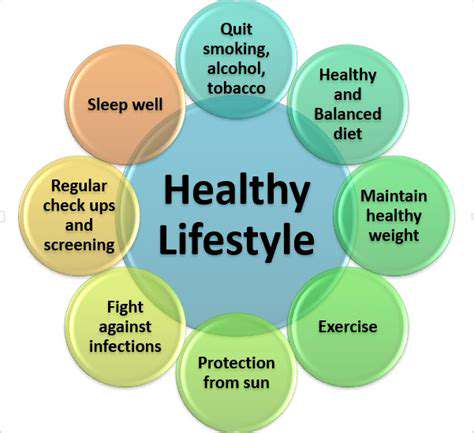
![What is the Mediterranean DASH Diet? [Benefits & How To]](/static/images/26/2025-05/MakingtheMediterranean-DASHDietaSustainableLifestyle.jpg)

